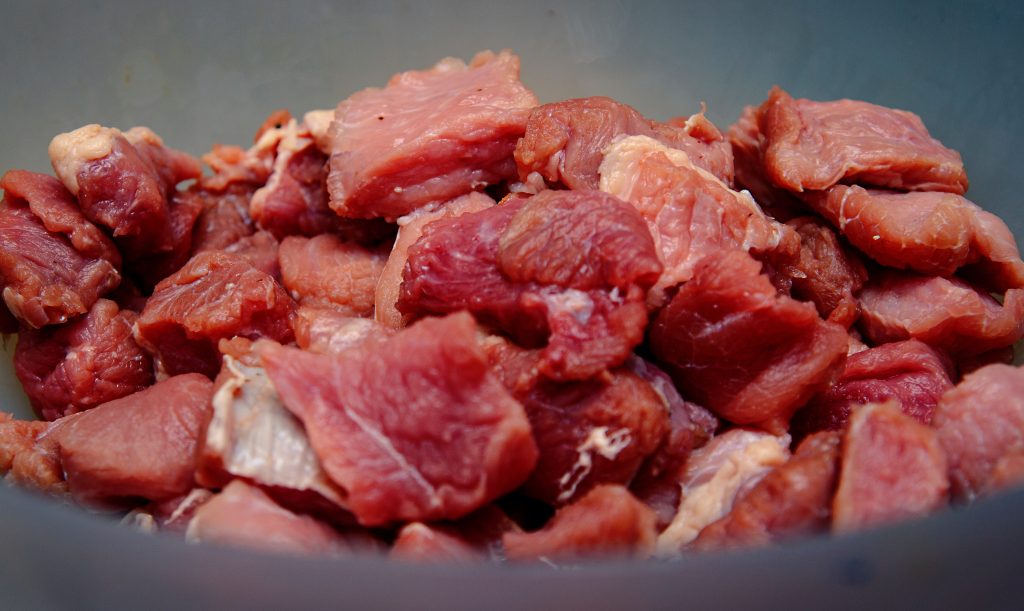UK commerce our bodies have responded to Switzerland’s new local weather technique for agriculture, during which Switzerland’s Federal Workplace for Meals Security and Veterinary Affairs (FOSV) discourages the Swiss public from consuming greater than three parts of meat per week.

The 2050 Local weather Technique for Agriculture and Meals goals to make the Swiss meals system “extra sustainable by decreasing greenhouse fuel emissions from agriculture whereas serving to agriculture adapt to local weather change.”
In response to SwissInfo.ch, Michael Beer of the Federal Workplace for Meals Security and Veterinary Affairs (FOSV) stated to the media: “Two to 3 parts of meat per week is a most from a well being viewpoint. We’re consuming 3 times an excessive amount of.”
The Swiss Farmers’ Union has taken the stance {that a} deal with adapting agriculture to international warming is a constructive change, however that limiting the consumption of meat and livestock manufacturing just isn’t the proper method to do that. This comes alongside their goals to take care of the “typical family-run farm” and guarantee an revenue for farmers “comparable with that of different sectors of the economic system.”
UK response to Swiss recommendation
Tony Goodger, a consultant of the Affiliation of Unbiased Meat Suppliers (AIMS), stated: “Most of the measures which were proposed akin to decreasing waste by way of the availability chain, better use of renewable vitality and managing water sparingly will undoubtedly assist the Swiss Authorities’s ambitions to cut back GHG emissions by no less than 40% in comparison with 1990 ranges.
“As we’re uncertain what the extent was in 1990, I counsel that many manufacturing initiatives from Swiss livestock farmers and processors are prone to have already made a big distinction when coupled with ‘new information’ akin to methane discount by way of feed components and higher breeding.
“I observe that their principal goal is to attain 50% meals self sufficiency by 2050 as a method to attain higher meals safety, and I counsel that this might be accomplished by way of extra livestock manufacturing utilizing regenerative processes to ship top quality meat together with natural fertiliser to counterpoint each pasture and soil for horticultures.
“It’s my view that some inside the annals of the Swiss civil service are perhaps peddling their very own agendas, slightly than what’s greatest for the nation’s residents and tourism sectors.”
Lucas Daglish, sustainability supervisor on the British Meat Processors Affiliation (BMPA) stated: “It’s necessary to take account of the origin and methodology of manufacturing of meals when altering our food plan for environmental slightly than dietary causes.
“International locations that profit from preferrred circumstances to rear livestock (just like the UK and New Zealand’s grass-fed techniques, amongst others) must be cautious of the unintended penalties of well-intentioned insurance policies that ‘backfire’. Coverage selections must be made utilizing scientifically sturdy metrics that precisely distinguish between completely different farming techniques.
“We agree with the ‘much less however higher’ axiom and would apply it to each animal and plant-based meals. At the start, any coverage selections ought to lead to equitable entry to meals that present high quality vitamin, significantly to these on decrease incomes and in susceptible conditions.
“Nonetheless, if political or social engineering drives folks to make what they assume are extra environmentally pleasant selections by steering them away from pure, nutritious complete meals in direction of unhealthy, extremely processed substitutes, then a decline in public well being shall be one of many unintended penalties.”



 Kantar knowledge reveals discounter shops rising market shares
Kantar knowledge reveals discounter shops rising market shares PM broadcasts worldwide meals safety summit to be held within the UK
PM broadcasts worldwide meals safety summit to be held within the UK